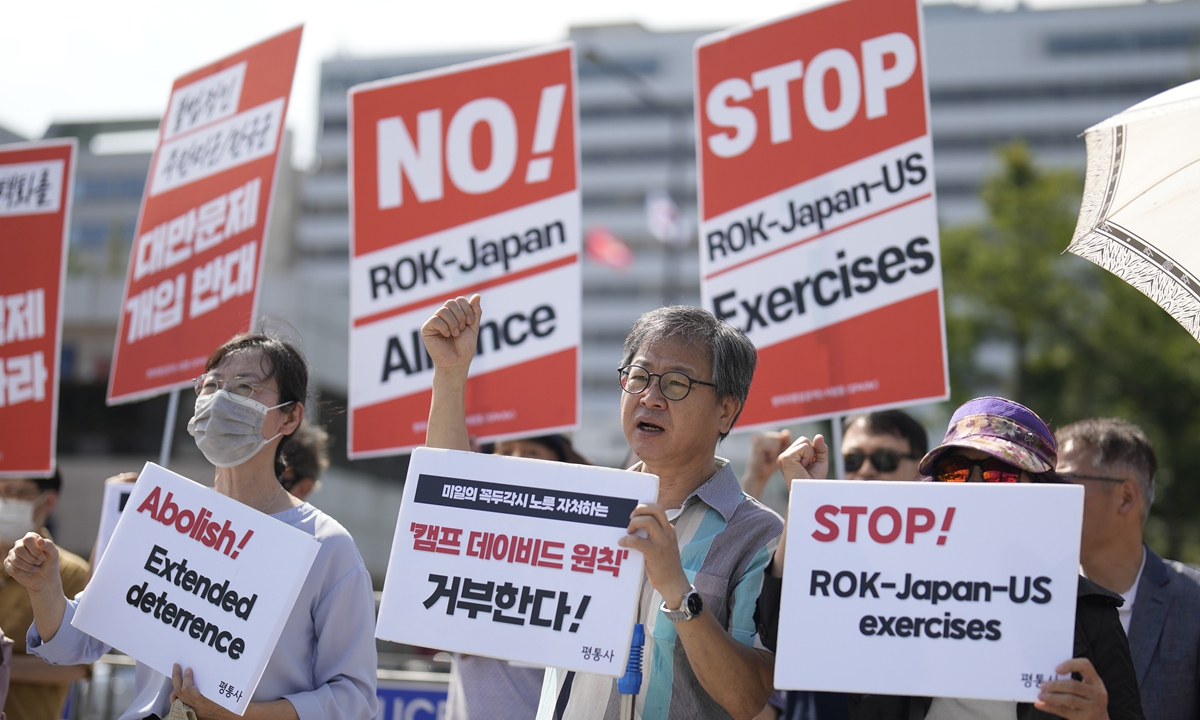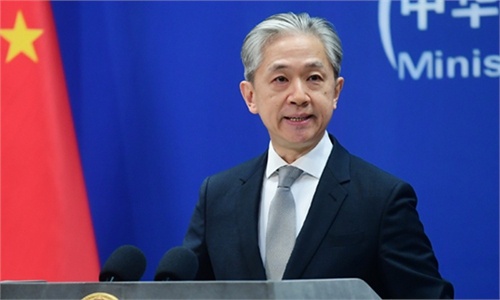US, Japan, S.Korea's 'Indo-Pacific Dialogue' in essence a collective attempt to restrain China's development: expert

Protesters shout slogans during a rally in Seoul on August 17, 2023, opposing a US-Japan-South Korea trilateral summit at Camp David in Maryland, US, scheduled for August 18. Photo: VCG
After the US, Japan and South Korea reiterated the importance of peace across the Taiwan Straits during their first "Indo-Pacific Dialogue" on US local time Friday, Chinese experts pointed out Sunday that this indicates that Japan and South Korea have been wooed by the US to serve as pawns in its "Indo-Pacific Strategy" to view China as a common adversary and jointly contain China's development.
The three countries issued a joint statement on Saturday, stating their assessment of the geopolitical developments influencing the Indo-Pacific region, while emphasizing the necessity for increased collaboration among them, according to the US department of state website.
The US, Japan and South Korea described China's recent actions to protect its lawful maritime rights and interests in the South China Sea as "dangerous and escalatory," and reiterated the importance of peace and stability across the Taiwan Straits as "indispensable" to security and prosperity in the international community.
However, this was refuted by Chinese experts.
"The joint statement indicates that the political and military alliance among the US, Japan and South Korea will be further strengthened, which was manifested by their recognition of China as a 'common adversary,'" Song Zhongping, a Chinese military expert and TV commentator, told the Global Times on Sunday.
Song said that the real purpose of the statement regarding the South China Sea and the Taiwan Straits made by the three countries is to contain China's development and adopt joint measures centered on US' so-called Indo-Pacific Strategy to strengthen control over China.
Song pointed out that the essence of such "Indo-Pacific Dialogue" is that the US has successfully wooed Japan and South Korea to make them important pawns in its "Indo-Pacific Strategy," which is to join the US in collectively countering China in order to maintain the US' own interests and hegemony in the region.
Chinese experts noted that the trilateral Indo-Pacific Dialogue is inevitably posing more destabilizing factors in the region, as the US hopes that more regional countries can become its pawns in an attempt to build a stronger alliance to counter China, while the purpose of institutionalizing the dialogue is to enable the three countries to establish joint measures against China in various fields.


